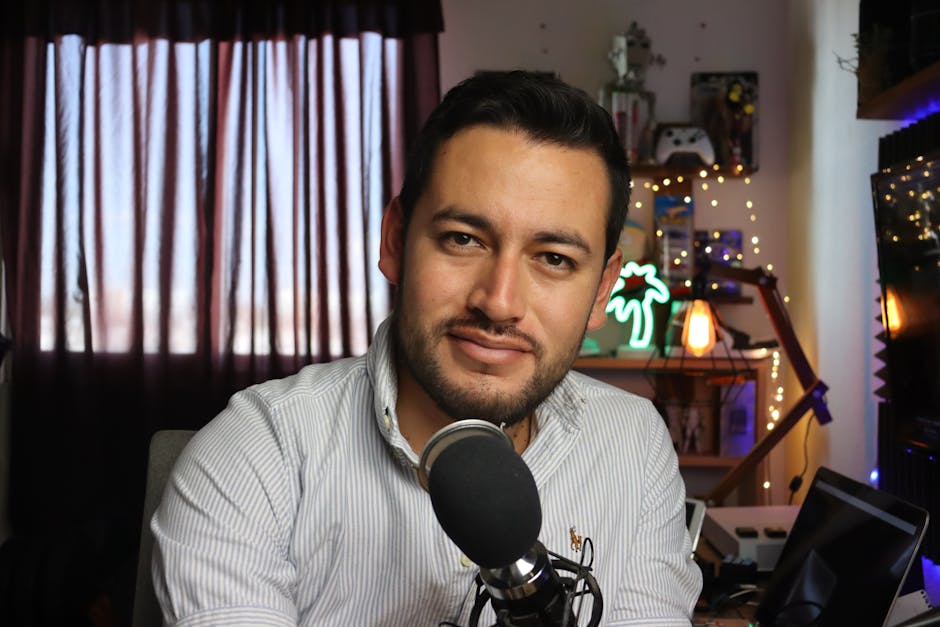My Deep Dive: Understanding Podcast Seo for Organic Growth.
In the bustling digital landscape, where everyone seems to have a voice, getting your podcast heard feels less like a conversation and more like shouting into a hurricane. For a long time, I grapped with this challenge, watching my download numbers plateau despite pouring my heart into every episode. I knew there had to be a better way than just hoping for virality or shelling out cash for ads. This realization sparked what I now call “My Deep Dive”—an intensive exploration into the often-misunderstood world of Podcast SEO, specifically aimed at unlocking sustainable, organic growth.
This wasn’t about quick hacks or chasing fleeting trends. My mission was to truly understand the underlying mechanics that govern how podcasts are discovered, indexed, and ultimately recommended by the platforms themselves. It was about shifting from a passive hope for listeners to an active strategy for attracting them naturally, consistently, and without relying on a marketing budget the size of a small country’s GDP. Join me as I share the insights, strategies, and paradigm shifts that emerged from this deep dive, offering a clear path to enhancing your podcast’s visibility and fostering genuine, organic audience expansion.
From Listener to Strategist: Kicking Off My Podcast SEO Exploration
My journey into podcast SEO didn’t start with a textbook; it began with a frustration shared by countless podcasters: the feeling of creating amazing content only for it to languish in obscurity. I was a listener first, then a creator, and it was through the lens of a listener that I began to question how I found new shows. It wasn’t always through social media or paid ads. Often, it was through a simple search within my favorite podcast app, or a recommendation based on my listening habits.
This initial observation was the spark. I realized that podcast directories—Apple Podcasts, Spotify, Google Podcasts, Stitcher, and others—weren’t just distribution channels; they were, in essence, search engines. And like any search engine, they operate on algorithms designed to connect users with relevant content. The fundamental shift in my thinking was acknowledging that “Podcast SEO” isn’t a niche offshoot of web SEO, but a distinct discipline with its own nuances, heavily focused on metadata, audio content, and user engagement signals within these specialized platforms. My deep dive, therefore, began with dismantling the assumption that great content alone would suffice and embracing the strategic imperative of making that great content discoverable to the right audience, organically.
Organic growth, in this context, means attracting listeners who genuinely seek out your content because it directly matches their interests and search queries. It’s about building a sustainable audience without constant expenditure on advertising, fostering a loyal community that grows through natural discovery and word-of-mouth. This approach prioritizes long-term value over short-term spikes, creating a robust foundation for your podcast’s future.
Unearthing Discovery: Decoding How Podcast Platforms See Your Content
The core of my deep dive revolved around understanding the “black box” of podcast platform algorithms. How do Apple, Spotify, or Google decide which podcasts to show first when someone searches for “history podcasts” or “true crime stories”? It’s not magic; it’s a sophisticated interplay of various signals, many of which we, as podcasters, can directly influence. This is where metadata mastery becomes paramount.

Think of your podcast’s metadata as the digital fingerprints that platforms use to identify and categorize your show. This includes your podcast title, episode titles, show description, episode descriptions, author name, and categories. Each of these elements is a prime opportunity to embed keywords that potential listeners are actively searching for. My deep dive revealed that simply having a catchy title isn’t enough; it needs to be strategically optimized. For instance, a title like “The History Buff Podcast: Uncovering Forgotten Stories” is far more discoverable than just “The History Buff” because it directly tells the algorithm (and the listener) what the show is about, incorporating relevant keywords. The same applies to episode titles – make them descriptive and keyword-rich, rather than cryptic or overly clever. Platforms like Apple Podcasts Connect and Google Podcasts Manager offer direct interfaces for managing this crucial information.
Beyond titles, the show and episode descriptions are vital. These are not just summaries; they are powerful SEO real estate. My strategy evolved to treat these descriptions like mini-blog posts, weaving in a variety of relevant keywords and phrases naturally. I focused on long-tail keywords – more specific phrases that listeners might type into a search bar, such as “in-depth interviews with indie game developers” rather than just “gaming.” These longer, more specific queries often indicate higher intent and lead to more qualified listeners. The goal is to provide enough textual context for the algorithm to accurately understand your content’s topic and match it with relevant searches, thereby boosting your organic visibility.
The Power of Categories and Tags in Discovery
Another critical aspect of platform understanding is categories and tags. While seemingly simple, choosing the right primary and secondary categories can significantly impact discoverability. My deep dive highlighted the importance of picking categories that are both accurate and have a decent search volume. Sometimes, a slightly less competitive but still relevant niche category can yield better organic results than a highly saturated broad category. Tags, where available, offer another layer of keyword integration, allowing you to specify even more granular topics within your show.
Crafting the Signal: Optimizing Audio & Text for Search Engines and Ears
My deep dive quickly revealed that podcast SEO isn’t just about what you type into the metadata fields; it’s also profoundly influenced by the content itself, both spoken and written. The true signal for organic growth comes from a holistic approach that optimizes both the audio and the accompanying text.
The Show Notes as Your Podcast’s Blog Post
I came to view show notes not as an afterthought, but as a critical component of my podcast’s SEO strategy. Imagine each episode’s show notes as a blog post specifically designed to complement your audio. They should be comprehensive, keyword-rich, and provide value independent of the audio. This means including:
- Detailed Summaries: Go beyond a few sentences. Summarize key topics, discussion points, and insights from the episode.
- Keyword Integration: Naturally weave in your target keywords and related long-tail phrases throughout the text. Think about what questions your episode answers and incorporate those queries.
- Timestamps: Not only do these improve user experience, but they can also create “jump links” in some podcast players and even appear in Google search results, giving search engines more contextual information.
- Links to Resources: Link to guests’ websites, research mentioned, or other relevant articles. These external links, especially to authoritative sources, can signal relevance and authority to search engines.
- Call to Action: Encourage listeners to subscribe, review, or share, which indirectly boosts visibility through engagement signals.
Transcriptions: Unlocking a Goldmine of Discoverability
Perhaps the most significant revelation from my deep dive was the power of episode transcriptions. While podcast directories primarily rely on metadata, the broader web—especially Google—can now “listen” to your audio through sophisticated AI. However, providing a full, accurate transcription of every episode is a direct, undeniable way to make your audio content fully searchable by Google and other web search engines.
When you publish a transcription on your podcast’s website, every word spoken in your episode becomes indexed text. This opens up an entirely new avenue for organic discovery:
- Google Search Visibility: People searching for specific topics, quotes, or names mentioned in your episode can find your content directly through Google search results, leading them to your website and, subsequently, your podcast.
- Accessibility: Transcriptions make your content accessible to the hearing impaired, expanding your potential audience and demonstrating a commitment to inclusivity.
- Content Repurposing:




Post Comment